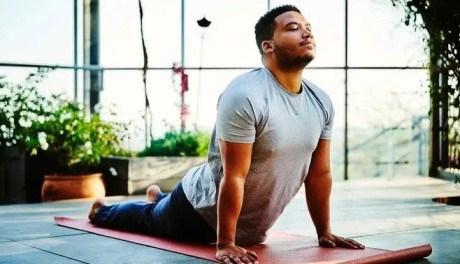How to Start Exercising : Your Essential Beginner’s Guide to Fitness | Why exercise need ?
How to Start Exercising

How to Start Exercising : Your Essential Beginner’s Guide to Fitness | Why exercise need ?
Introduction:
- Welcome to the Beginner’s Guide to Exercising
- Importance of Regular Exercise
Chapter 1: Getting Started
- Assessing Your Current Fitness Level
- Setting Realistic Goals
- Choosing Suitable Exercises
Chapter 2: Creating a Workout Plan
- Understanding Different Types of Exercises (Cardio, Strength, Flexibility)
- Designing a Balanced Routine
- Determining Frequency and Duration
Chapter 3: Warm-Up and Cool Down
- Importance of Warm-Up and Cool Down
- Sample Warm-Up Exercises
- Sample Cool-Down Stretches

Chapter 4: Cardiovascular Exercises
- Benefits of Cardiovascular Exercise
- Examples of Cardiovascular Workouts (Walking, Jogging, Cycling, Swimming)
Chapter 5: Strength Training
- Importance of Strength Training
- Basic Strength Exercises (Squats, Lunges, Push-Ups, Dumbbell Exercises)
- Tips for Proper Form and Technique
Chapter 6: Flexibility and Stretching
- Benefits of Flexibility Training
- Essential Stretches for Beginners (Hamstrings, Quadriceps, Shoulders, Back)
Chapter 7: Overcoming Challenges
- Dealing with Motivation Issues
- Overcoming Physical Limitations
- Finding Support and Accountability
Chapter 8: Staying Safe and Preventing Injury
- Importance of Listening to Your Body
- Avoiding Overtraining
- Preventing Common Exercise-Related Injuries
Chapter 9: Tracking Progress and Adjusting Your Plan
- Keeping a Workout Journal
- Monitoring Changes in Fitness Level
- Making Adjustments to Your Routine
How to Start Exercising Conclusion:
- Congratulations on Taking the First Step!
- Final Words of Encouragement
Feel free to expand each chapter with more detailed information and specific exercises as needed.
Why exercise need?

Exercise is essential for maintaining overall health and well-being. Here are several reasons why exercise is important:
- Physical Health: Regular exercise helps to improve cardiovascular health by strengthening the heart and improving circulation. It also helps to maintain a healthy weight, reduce the risk of chronic diseases such as heart disease, diabetes, and stroke, and strengthen bones and muscles.
- Mental Health: Exercise has been shown to have a positive impact on mental health by reducing symptoms of depression, anxiety, and stress. It can also improve mood, boost self-esteem, and promote better sleep.
- Energy Levels: Engaging in regular physical activity can increase energy levels and reduce feelings of fatigue. Exercise helps to improve stamina and endurance, allowing individuals to perform daily tasks with greater ease.
- Brain Health: Exercise has cognitive benefits, including improved memory, concentration, and mental clarity. It stimulates the release of neurotransmitters such as dopamine and serotonin, which are associated with mood regulation and cognitive function.
- Longevity: Research suggests that regular exercise is linked to a longer lifespan. By reducing the risk of chronic diseases and promoting overall health, exercise can contribute to a higher quality of life and increased longevity.
- Improved Quality of Life: Exercise enhances physical function and mobility, making it easier to perform activities of daily living and maintain independence as we age. It also promotes social interaction and can be a source of enjoyment and fulfillment.
- Weight Management: Regular exercise plays a key role in weight management by helping to burn calories and maintain a healthy balance between energy intake and expenditure. It can aid in both weight loss and weight maintenance, reducing the risk of obesity and associated health problems.
- Heart Health: Exercise strengthens the heart muscle and improves its efficiency, leading to better circulation and lower blood pressure. It also helps to lower levels of LDL cholesterol (the “bad” cholesterol) while increasing levels of HDL cholesterol (the “good” cholesterol), reducing the risk of heart disease and stroke.
- Blood Sugar Control: Physical activity helps to regulate blood sugar levels by increasing insulin sensitivity and improving glucose metabolism. This is particularly important for individuals with diabetes or insulin resistance, as exercise can help to manage blood sugar levels and reduce the risk of complications.
- Bone Health: Weight-bearing exercises such as walking, jogging, and strength training help to build and maintain bone density, reducing the risk of osteoporosis and fractures, especially as we age. Exercise also promotes joint health and flexibility, reducing the risk of arthritis and joint pain.
- Immune Function: Moderate exercise has been shown to boost the immune system, reducing the risk of infections and illness. It helps to promote the production of antibodies and white blood cells, which play a crucial role in defending the body against pathogens.
- Stress Relief: Physical activity is a natural stress reliever, triggering the release of endorphins, which are chemicals in the brain that act as natural painkillers and mood elevators. Regular exercise can help to reduce feelings of anxiety and tension, promoting a sense of relaxation and well-being.
- Cognitive Function: Exercise has been linked to improved cognitive function and a reduced risk of cognitive decline with age. It stimulates the growth of new brain cells and promotes the release of brain-derived neurotrophic factor (BDNF), a protein that supports brain health and function.
- Sleep Quality: Engaging in regular physical activity can improve sleep quality and duration, leading to better overall sleep patterns. Exercise helps to regulate the sleep-wake cycle and promotes relaxation, making it easier to fall asleep and stay asleep throughout the night.
- Social Connection: Exercise provides opportunities for social interaction and connection, whether through group fitness classes, sports teams, or outdoor activities with friends and family. Building social connections through exercise can enhance mental well-being and provide a sense of belonging and community.
- Mood Enhancement: Exercise has a profound impact on mood and emotional well-being. It stimulates the release of neurotransmitters such as serotonin, dopamine, and norepinephrine, which are known to elevate mood and promote feelings of happiness and contentment. Regular exercise can alleviate symptoms of depression and anxiety and enhance overall emotional resilience.
- Brain Health and Cognitive Performance: Physical activity has been shown to improve brain function and cognitive performance. It enhances cognitive abilities such as attention, memory, and executive function, leading to better mental clarity, focus, and productivity. Exercise also promotes neuroplasticity, the brain’s ability to adapt and reorganize, which is crucial for learning and memory.
- Pain Management: Exercise can be an effective tool for managing chronic pain conditions such as arthritis, fibromyalgia, and lower back pain. It helps to strengthen muscles, improve flexibility, and reduce inflammation, leading to decreased pain intensity and improved functional capacity. Exercise also triggers the release of endorphins, which can act as natural pain relievers.
- Self-Esteem and Confidence: Engaging in regular exercise can boost self-esteem and confidence by improving physical appearance, body image, and perceived competence. Accomplishing fitness goals, whether it’s running a certain distance, lifting a certain weight, or mastering a new exercise technique, can instill a sense of pride and accomplishment, enhancing overall self-worth.
- Long-Term Health and Aging: Regular exercise is associated with a lower risk of chronic diseases and age-related decline. It can help to delay the onset of age-related conditions such as cognitive impairment, osteoporosis, and sarcopenia (loss of muscle mass), allowing individuals to maintain independence and quality of life as they age. Exercise also promotes healthy aging by preserving mobility, flexibility, and vitality.
- Improved Productivity and Performance: Exercise has been shown to enhance productivity, creativity, and overall cognitive performance. Regular physical activity can increase energy levels, mental alertness, and focus, making it easier to concentrate on tasks and perform at your best. Incorporating short bouts of exercise throughout the day can help to combat fatigue and maintain mental sharpness.
- Positive Lifestyle Habits: Engaging in regular exercise often leads to the adoption of other healthy lifestyle habits, such as eating a balanced diet, getting adequate sleep, and managing stress effectively. These lifestyle factors work synergistically to promote overall health and well-being, creating a positive cycle of wellness that benefits mind, body, and spirit.
- Energy Boost: Contrary to common belief, exercise doesn’t deplete energy; instead, it generates it. Regular physical activity increases blood flow and oxygen delivery to tissues, promoting better energy levels and reducing feelings of fatigue. Even a brief workout can leave you feeling more energized and revitalized.
- Enhanced Immune Function: Moderate exercise has been shown to enhance immune function, reducing the risk of infections and illnesses. It can help your body’s defense mechanisms function optimally by promoting the circulation of white blood cells, which are essential for fighting off pathogens.
- Improved Digestive Health: Exercise aids in maintaining healthy digestion by stimulating the movement of food through the digestive tract and reducing the risk of constipation and bloating. It can also help regulate appetite and metabolism, contributing to better weight management and overall digestive well-being.
- Better Posture and Alignment: Regular exercise, especially strength training and core exercises, helps to strengthen the muscles that support the spine and promote better posture and alignment. This can alleviate common issues such as back pain and neck stiffness and improve overall musculoskeletal health.
- Increased Longevity: Numerous studies have linked regular exercise to increased longevity and a reduced risk of premature death. Engaging in physical activity can add years to your life by lowering the risk of chronic diseases and improving overall health and vitality.
- Enhanced Brain Connectivity: Exercise has been shown to enhance connectivity between different regions of the brain, leading to improved cognitive function and mental agility. It can enhance brain plasticity, which is crucial for learning, memory, and problem-solving abilities.
- Stress Reduction: Exercise is a powerful stress reliever, helping to reduce the production of stress hormones such as cortisol and adrenaline. It promotes the release of endorphins, which are natural mood enhancers, and provides a healthy outlet for pent-up tension and anxiety.
- Quality Sleep: Regular physical activity can improve sleep quality and duration, leading to more restful and rejuvenating sleep. Exercise helps regulate the sleep-wake cycle and promotes relaxation, making it easier to fall asleep and stay asleep throughout the night.
- Positive Social Interaction: Participating in group exercise classes, sports teams, or outdoor activities provides opportunities for social interaction and connection. Building relationships through exercise can foster a sense of belonging and support, enhancing overall well-being and mental health.
- Brain Health and Neuroprotection: Exercise has neuroprotective effects, meaning it helps to protect the brain from degenerative conditions such as Alzheimer’s disease and Parkinson’s disease. It promotes the growth of new neurons and strengthens neural connections, leading to better cognitive function and resilience against age-related cognitive decline.
- Improved Respiratory Function: Regular exercise strengthens the muscles involved in breathing and improves lung capacity and efficiency. This can enhance respiratory function, making it easier to breathe and reducing the risk of respiratory conditions such as asthma and chronic obstructive pulmonary disease (COPD).
- Enhanced Mood Regulation: Exercise has a powerful impact on mood regulation, helping to alleviate symptoms of depression, anxiety, and other mood disorders. It increases levels of neurotransmitters such as serotonin and norepinephrine, which are known to promote feelings of well-being and happiness.
- Better Skin Health: Exercise promotes better circulation, which delivers oxygen and nutrients to the skin and helps to flush out toxins. It can also stimulate the production of collagen, a protein that keeps the skin firm and elastic, leading to a healthier complexion and reduced signs of aging.
- Increased Self-Confidence: Regular exercise can boost self-confidence and self-esteem by improving physical fitness and body image. Achieving fitness goals, such as running a certain distance or lifting a certain weight, can instill a sense of accomplishment and pride, leading to greater self-assurance in other areas of life.
- Improved Relationships: Exercising with friends, family, or partners can strengthen relationships and foster a sense of connection and camaraderie. Sharing fitness goals and experiences can create bonds that enhance social support and contribute to overall happiness and well-being.
- Enhanced Focus and Concentration: Exercise has been shown to improve focus, concentration, and cognitive performance, making it easier to stay alert and attentive throughout the day. It can help to sharpen mental acuity and productivity, leading to better performance in work, school, and other tasks.
- Better Balance and Coordination: Engaging in activities that challenge balance and coordination, such as yoga, Pilates, and certain sports, can improve proprioception (awareness of body position) and enhance overall balance and stability. This can reduce the risk of falls and injuries, especially in older adults.
- Positive Outlook on Life: Regular exercise fosters a positive outlook on life by promoting feelings of vitality, resilience, and optimism. It provides a sense of purpose and accomplishment, helping individuals to overcome obstacles and embrace new challenges with confidence and enthusiasm.
- Pain Management: Exercise can help alleviate chronic pain conditions by reducing inflammation, strengthening muscles, and improving flexibility and joint function. It releases endorphins, which act as natural pain relievers, providing relief from discomfort associated with conditions such as arthritis, fibromyalgia, and chronic back pain.
- Increased Metabolic Rate: Regular exercise boosts metabolism, helping the body burn calories more efficiently even at rest. This can aid in weight management and make it easier to maintain a healthy weight over time. Additionally, exercise can help prevent metabolic disorders such as insulin resistance and metabolic syndrome.
- Enhanced Cardiovascular Endurance: Engaging in cardiovascular exercise, such as running, swimming, or cycling, improves cardiovascular endurance by strengthening the heart and lungs. This leads to better stamina and the ability to perform physical activities for longer periods without fatigue.
- Better Blood Sugar Control: Exercise plays a crucial role in managing blood sugar levels by enhancing insulin sensitivity and glucose uptake by muscles. This is particularly beneficial for individuals with diabetes or those at risk of developing the condition, as regular physical activity can help regulate blood sugar levels and reduce the need for medication.
- Reduced Risk of Cancer: Research suggests that regular exercise is associated with a reduced risk of certain types of cancer, including breast, colon, and prostate cancer. Exercise helps to regulate hormone levels, reduce inflammation, and enhance immune function, all of which may contribute to lower cancer risk.
- Improved Posture and Body Alignment: Strengthening core muscles and improving flexibility through exercise can promote better posture and body alignment, reducing the risk of musculoskeletal imbalances and injuries. Good posture not only enhances physical appearance but also supports spinal health and overall well-being.
- Increased Resilience to Stress: Regular exercise enhances the body’s ability to cope with stress by promoting the release of stress-relieving hormones and neurotransmitters, such as endorphins and serotonin. This can improve resilience to stressors and help individuals maintain a more positive outlook during challenging times.
- Enhanced Memory and Cognitive Function: Exercise has been shown to have cognitive benefits, including improved memory, concentration, and cognitive flexibility. It promotes the growth of new neurons and enhances brain plasticity, which are essential for learning and memory retention.
- Social Engagement and Connection: Participating in group exercise classes, sports teams, or recreational activities provides opportunities for social interaction and connection, reducing feelings of loneliness and isolation. Building relationships through exercise can foster a sense of community and support, contributing to overall well-being.
- Sense of Achievement and Fulfillment: Setting and achieving fitness goals, whether it’s running a marathon, mastering a new yoga pose, or increasing strength and endurance, can provide a sense of achievement and fulfillment. Celebrating milestones and progress along the way boosts self-confidence and motivation, reinforcing the habit of regular exercise.
Overall, exercise is a fundamental component of a healthy lifestyle, offering numerous benefits for both physical and mental well-being. Incorporating regular physical activity into your routine can lead to a happier, healthier life.


exercise,how to lose weight,fitness,how to start at the gym for beginners,the only home exercises you need to build muscle fast,how to use gym equipment for beginners,exercises to gain strength,exercises to build muscle no equipment,exercises for men to build muscle,exercises to get strong,how to use dumbbells for beginners,exercises to build muscle without weights,exercise to do at home,how to,how to build muscle at planet fitness,
why exercise need ?, why do we need to exercise, why do astronauts need to exercise in space, why do you need to exercise, why do dogs need exercise, why do i need to poop after exercise, why do we need to stretch before exercise, why do i need to exercise, why do you need aerobic exercise, why do you need to exercise everyday, why do cats need exercise, why exercise needed for a healthy living, why do adults need exercise,
why need nap after exercise, why do dogs need a exercise, why workout is necessary, why exercise are important, why is it necessary to exercise, is supporter necessary for exercise, why do animals need exercise, why do i need to sleep after exercise, why do i need to pee after exercise, why do adults need to exercise, why does a child need exercise, why do we need a parliament exercise, why does a dog need exercise, why bones need exercise, why we need to exercise your body,
why do bones need exercise, why do babies need exercise, why do doctors recommend exercise, why do muscles need blood during exercise, why we need to warm up before exercise, why we need to stretch before exercise, why does your body need regular exercise, does exercise deplete b vitamins, is vitamin b good for muscles, why do we need exercise class 1, why we need cardio exercise, why children need exercise, why do children need exercise, why don’t cats need exercise,
why do we need cardio exercise, why we need to cool down after exercise, why need to cool down after exercise, why do i need to cough after exercise, why we need do exercise, why do you need exercise, why do kids need exercise, why do humans need exercise, why do horses need exercise, why do rabbits need exercise,
why do i need exercise, why do you need to exercise to lose weight, why do we need exercise everyday, why we need to exercise everyday, why is exercise essential,, why do we need to exercise everyday, why do we need electrolytes after exercise, why do you need electrolytes after exercise, why exercise is essential, can you improve ef with exercise, why we need exercise for kids, why is regular exercise needed for healthy digestive system,
why do we need exercise for kids, why does exercise decrease the need for insulin, why do we need to exercise for kids, why do i feel like i need to exercise,

